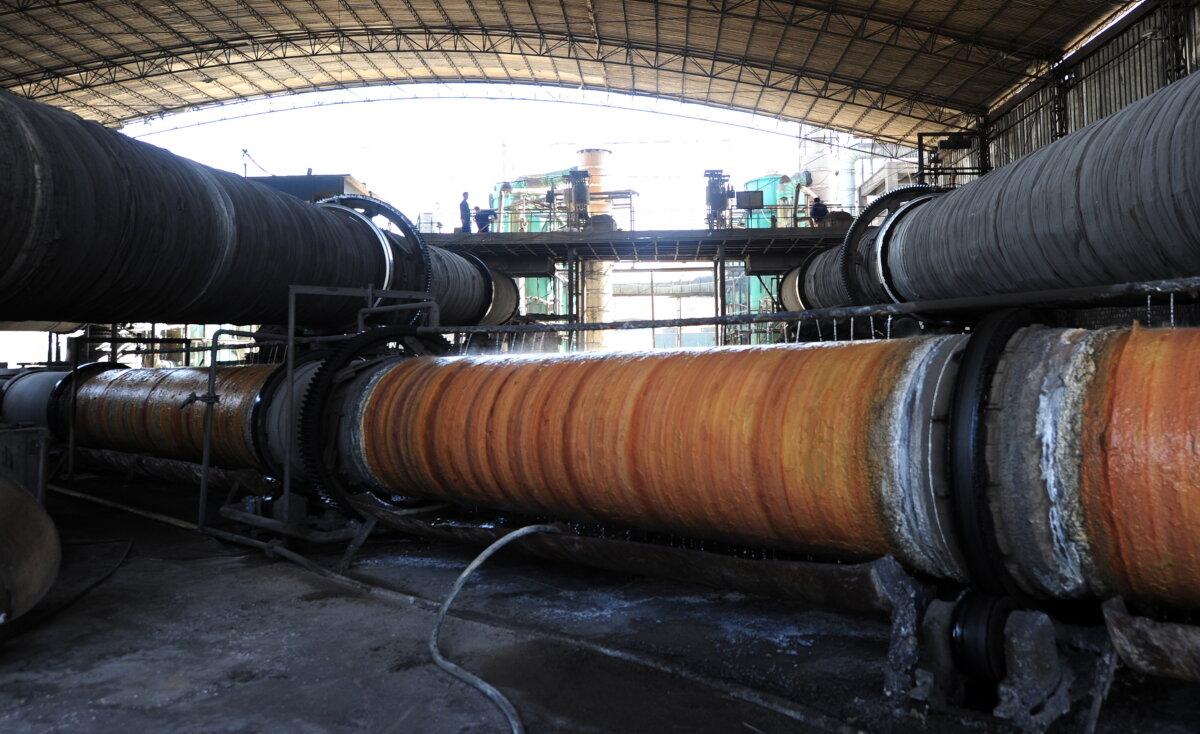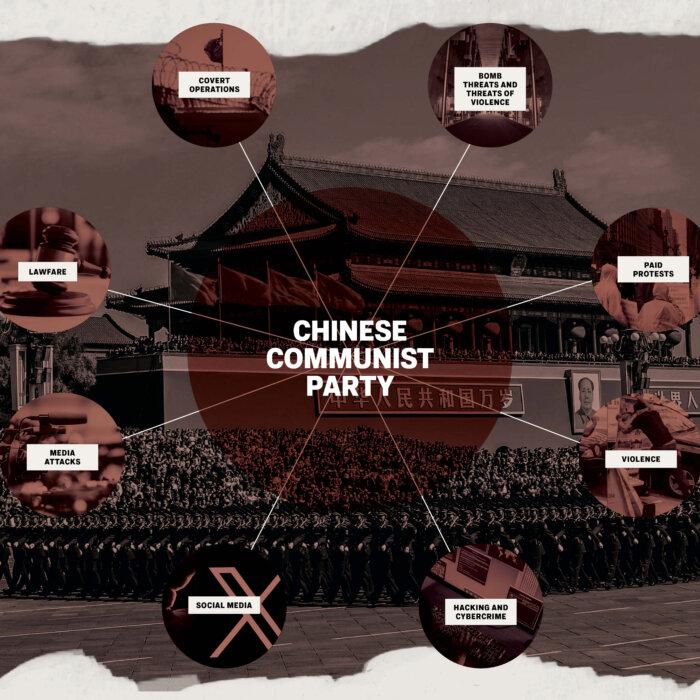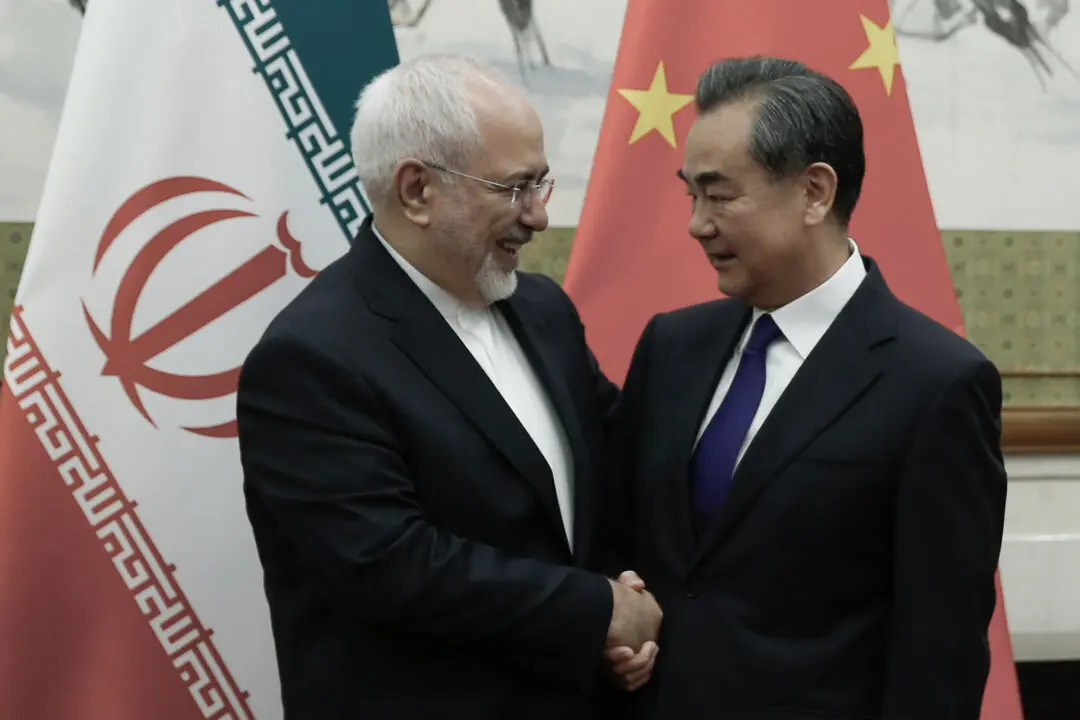WASHINGTON—The Chinese Communist Party has been exploiting the U.S. courts to censor critics and advance its own interests at the expense of the United States, experts told a congressional panel on July 22.
The regime’s scheme, also called legal warfare or lawfare, includes using third parties to file lawsuits against the regime’s targets and burdening them with heavy legal fees, as well as gaming U.S. laws to shield Chinese bad actors from consequences, the panel members said.
“Beijing works to shape U.S. laws and regulations and their implementation, in many cases via U.S. entities that have been co-opted by dependence on or resources from the PRC,” said Emily de La Bruyère, senior fellow at the Foundation for Defense of Democracies, using the acronym for People’s Republic of China.
The regime has proved itself willing to “use the U.S. legal system to punish those who stand in its way,” she said.
“All of that is not new,” Rep. Darrell Issa (R-Calif.), who chairs the House Judiciary Subcommittee on Courts, Intellectual Property, and the Internet, said in his opening statement. “We see it in criminal operations, in human trafficking, in drug smuggling, in commercial fraud, and that is not limited to any one country, but the fact that it’s backed by a powerful country who is using and weaponizing this is particularly disturbing.
‘Cartel’
One victim of China’s lawfare is Charlotte Pipe and Foundry, a leading U.S. iron casting and pipe manufacturing company. At the hearing, its senior vice president, Bradford Muller, said that the company has spent roughly $7 million to defend its products against Chinese rivals, which sell at otherwise impossibly low prices after evading U.S. tariffs through third countries.By accident, the foundry discovered a Chinese entity stealing its brand identity at a trade show in Singapore, where a man passed out business cards bearing their exact company name and logo. However, the card pointed to a building in Shanghai. Charlotte Pipe and Foundry hired a Chinese law firm to fight their case in China, but the effort went nowhere, Muller said, noting that smaller businesses can’t afford the same level of advocacy and many are now going out of business.

Muller’s experience highlights one of many ways the tactic can play out.
Through intellectual property lawsuits, the regime can gain access to valuable technology through the discovery process, where parties exchange evidence before trial. Beijing has been steadying its foothold through proxy networks in the United States to benefit from preferential policies while expanding its network of influence to undermine the U.S. system, according to de La Bruyère.
The entire Chinese industry is “not a private sector, it’s a cartel,” she said.
“We should think of Chinese companies, including their outpost in the United States, as being arms of the Chinese system and colluding,” de La Bruyère said.
One focus of the regime’s lawfare effort has been Shen Yun Performing Arts, a group founded by Falun Gong practitioners to showcase pre-communist culture and spotlight the regime’s abuses against their faith.

Chilling Effect
Lawfare is a convenient tool for the regime because it works under a layer of legitimacy, said Julian Ku, constitutional law professor at Hofstra Law School.“It’s a very clever way to gain advantages for their political goals,” he told The Epoch Times.
The cost of going to court is substantial, and lawyers might hesitate at taking on a case for fear they could face retaliatory lawsuits as well.
“It’s really effective both as just a threat to scare people,” and it could also “cost some serious money,” Ku said, noting that the Chinese diaspora is even more vulnerable given their lack of familiarity with the court system.
If the Chinese regime were to succeed in attacking critics by manipulating the U.S. legal system, it would create a silencing effect, de La Bruyère told The Epoch Times.
People would be afraid to speak out against the regime even on issues publicly known, because it’s “simply too dangerous,” she said at the hearing.
Both Ku and de La Bruyère said it is crucial to push for stronger disclosure requirements on litigants’ backgrounds.
“We require people to register as foreign agents in other contexts—if you have a blog or something and you’re promoting the views of the Chinese Communist Party. But actually, if you’re funding a lawsuit, it’s not required to be disclosed; it’s odd,” Ku said.
The Foreign Agents Registration Act has also provided a guide for seeking information on activities from foreign adversaries and agents, de La Bruyère said.
U.S. businesses and law firms in China should limit engagement with China “to the greatest extent possible,” she said.

Rep. Kevin Kiley (R-Calif.) said the regime’s legal abuse is “very concerning.”
He said Congress needs to act to stop the regime from taking advantage of U.S. openness and take up the proposals at the hearing, such requiring foreign courts to weigh U.S. legal judgments if U.S. courts respect theirs, and measures to deter frivolous lawsuits.
“We have a lot to work with, but it’s a big problem,” Kiley told The Epoch Times.
It will take a while, Ku said, “but you have to take baby steps.”







